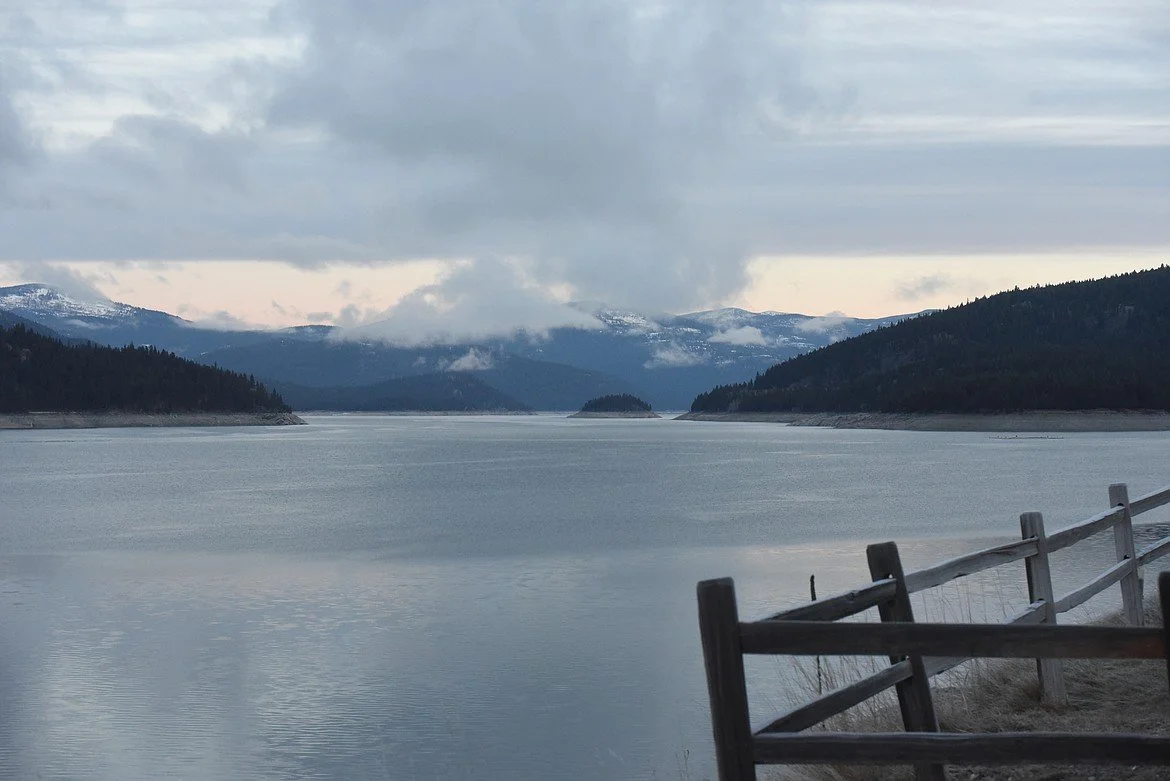Walking the streets of Libby, Mont., on a hazy September day, it’s not uncommon to hear the cough of a local resident. The picturesque, blue-collar town about an hour southwest of the Canada-U.S. Border in Montana’s north was once bustling with jobs thanks to nearby vermiculite mines. The work helped line locals’ wallets with steady pay. And lined their lungs with toxic asbestos dust. Years of remediation have helped make the town of about 2,700 safe again following what government officials called the worst case of industrial poisoning of a community in American history. But residents are still struggling to rebuild after hundreds died, and approximately 2,400 have been diagnosed with asbestos-related diseases.
Canadian Coal Mine Ramps Up Efforts to Challenge Montana Water Quality Standard
An entourage of Canadian coal mining executives pressed into the Lincoln County commissioners’ conference room last week to deliver promising news for Lake Koocanusa, the 80-mile long reservoir that straddles the U.S.-Canada border in Montana and British Columbia, and which has been at the center of both statewide and international efforts to reduce transboundary environmental pollution for more than a decade. “Selenium levels in the Koocanusa Reservoir are safe,” according to a PowerPoint slide summarizing a March 30 presentation by representatives of the global mining company Teck Resources, who made the trip to Libby to deliver the news in person.
Teck opens third B.C. water treatment plant
British Columbia-based Teck Resources Ltd. announced Friday that a third water treatment plant is operational for the coal giant to treat selenium in the upper Fording River of Canada. The new facility has a daily capacity of treating up to about 5.3 million gallons of water. The company said its water treatment operations remove some 95 percent of selenium and nitrate from waters treated in the Elk Valley.
Canadian coal company appeals tough U.S. selenium rule as provinces consider mines
Montana’s new rules reduce allowable selenium concentrations to 0.8 micrograms per litre of water. B.C.’s current guideline is two micrograms per litre. Montana officials have said those tougher restrictions on selenium are needed to protect waters shared by both countries. Erin Sexton, a senior biologist at the University of Montana, said fish caught in U.S. waters show selenium concentrations high enough to damage their ability to lay eggs and reproduce.
Read the Daily Inter Lake Article
Canada's largest coal company is challenging a new Montana water quality standard that aims to limit concentrations of toxic runoff from the company's mines in British Columbia as it travels across the international border into the Kootenai River and Lake Koocanusa. Teck Resources Ltd. this month filed a petition with the state Board of Environmental Review, part of the Department of Environmental Quality, which last year adopted a stringent site-specific water quality standard for the trace element selenium, a byproduct of coal mining that's been found at high levels in fish tissue and egg samples on both sides of the border.
Monitors doubt Teck mining company’s water fixes selenium issue
As Teck Resources hopes to expand its mountaintop-removal coal mining in British Columbia, water quality monitors in Canada and the United States warn the company’s existing mines already cause significant ecological damage. In 2019, the company’s research revealed that more than 90% of the cutthroat trout population had vanished in a 37-mile reach of the Upper Fording River near its mines around Sparwood, British Columbia. On March 26, Teck pleaded guilty to two counts of illegally discharging selenium and other pollutants into the watershed and paid a $60 million fine – the largest of its kind in Canadian history.







